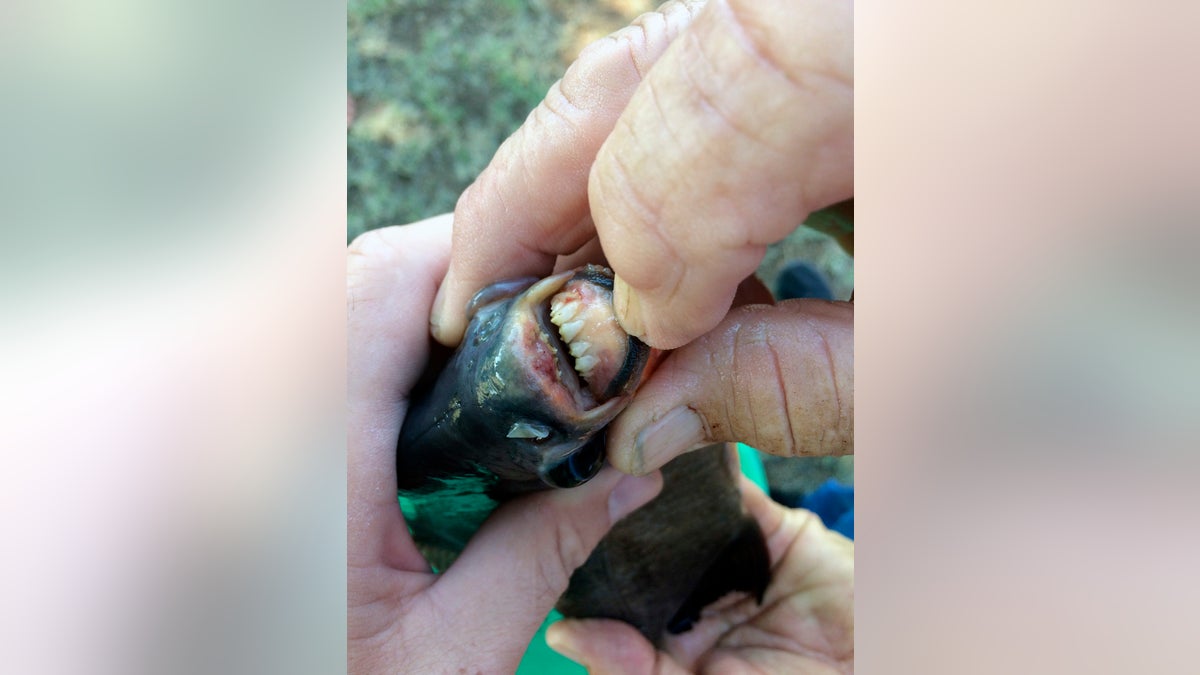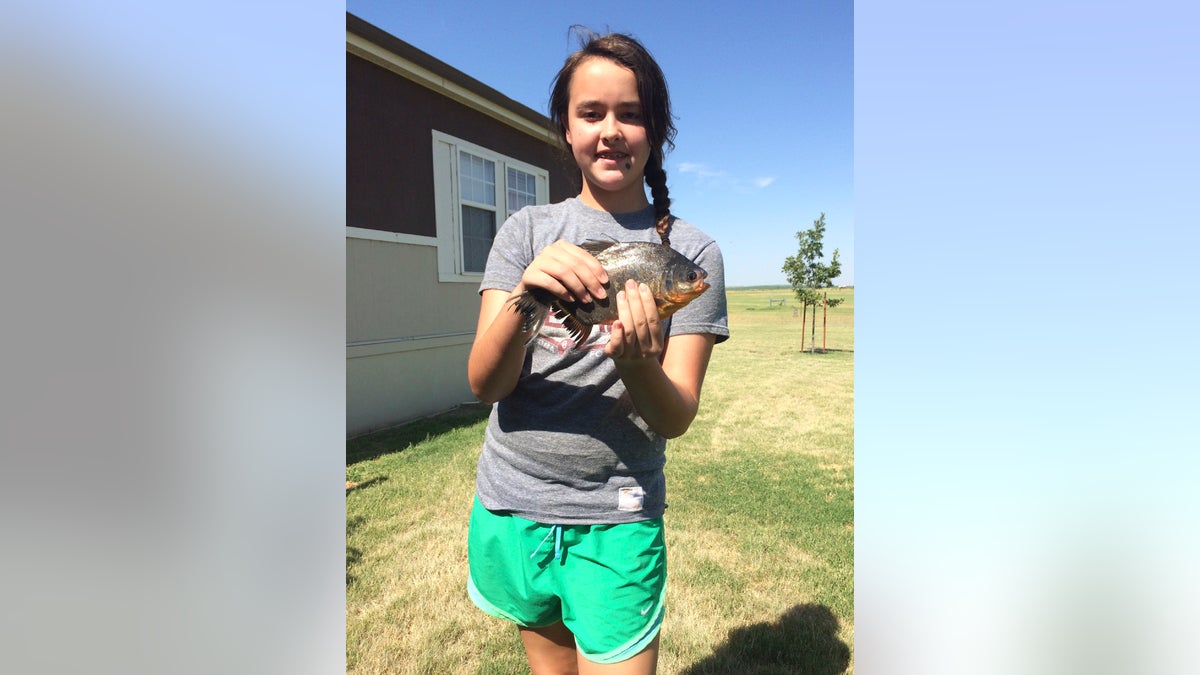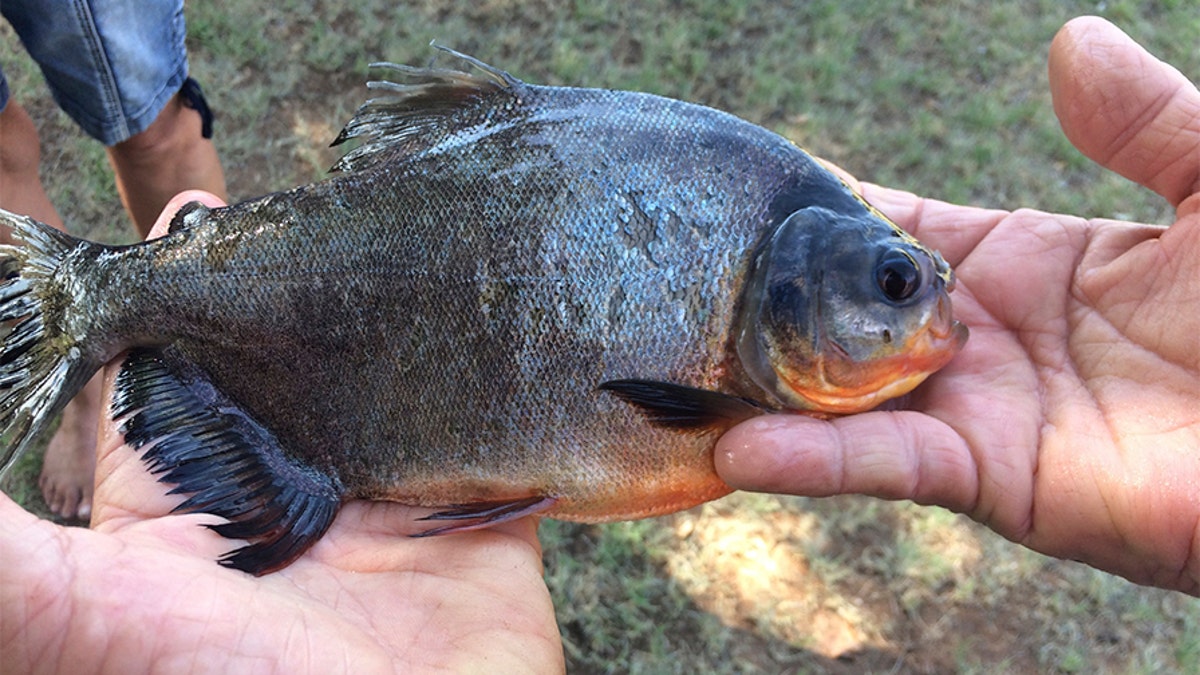
A young girl in Oklahoma said she snagged a “weird” catch over the weekend, reeling in a fish bearing “human-like” teeth. (Tyler Howser/Oklahoma Department of Wildlife Services via AP)
A young girl in Oklahoma said she snagged a “weird” catch over the weekend, reeling in a fish bearing “human-like” teeth.
Kennedy Smith, 11, was on a fishing trip at Fort Cobb Lake with her grandparents and brother on Sunday and got “really excited” when she hooked the fish on her line, she told The Associated Press.
But to Smith’s surprise, her grandmother was bitten by the animal while she was trying to take out the hook.
"I was confused because I knew that fish with teeth are not normal. It was weird," Smith told the outlet. "They were human-like and that made it even weirder."

Kennedy Smith, of Lindsay, Okla, holds a pacu, a native South American fish she caught in a southwestern Oklahoma lake in Caddo County, Okla. Game Warden Tyler Howser said the pacu is considered an invasive species and was destroyed. (Tyler Howser/Oklahoma Department of Wildlife Services via AP)
FLORIDA MAN’S 826-POUND BLUEFIN TUNA CATCH BECOMES NEW STATE RECORD
Turns out that the strange looking creature was a Pacu, Caddo County Game Warden Tyler Howser told The Associated Press.
“I've actually caught one myself,” Howser said. “As soon as I saw (it) I said ‘I know what that is.’”
The fish, which are from South America, have family ties to the Piranha, according to the Oklahoma Game Wardens, who posted about the “unique catch” on Facebook.
While officials indicate the fish can grow to be quite large, the one Smith caught only weighed about a pound, Howser said.
MASSACHUSETTS FISHERMAN WRESTLE GREAT WHITE SHARK FOR STRIPED BASS IN WILD FOOTAGE

While officials indicate the fish can grow to be quite large, the one Smith caught only weighed about a pound, Howser said. (Tyler Howser/Oklahoma Department of Wildlife Services via AP)
Officials said the toothy creature likely got into the lake after first being bought as a pet and then getting released once it became too big.
Pacu are considered an invasive species that can destroy the native Oklahoma fish ecosystem and habitat, so the fish Kennedy caught was taken by the Oklahoma Department of Wildlife Conservation and destroyed.
The Associated Press contributed to this report.
